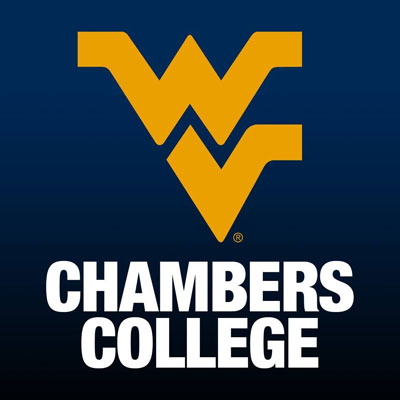For Emily Tanner, an assistant professor of marketing at the West Virginia University College of Business and Economics, you can say professional sales, marketing and academia are in her blood.
Her father, Jeff Tanner, is a professional sales professor and the dean of the Old Dominion University Strome College of Business. She gives him gracious credit for having an impact on her career. “Growing up, I had the inside scoop on what it was like to be a professor. One of the things that I thought was really great and interesting is that it’s a job where I’m always constantly learning,” she said.
Tanner also has an extensive background in sales, as she was formerly the Director for Healthcare Solutions at Research Now. She brings this tireless knowledge and passion into her teaching and research. Most recently, she advised two B&E marketing students who brought home big wins at Old Dominion University’s Sales Slam.
Read more about her research, career and what inspires Tanner in the following Q&A.
- With one year in, how has your experience at WVU and B&E been so far?
- How did you become interested in marketing and professional sales?
- Can you talk a little bit about your career before getting into academia, specifically with Research Now?
- Now that you’re in academia, what do you like most about researching and teaching?
- Your research is focused on how marketing relationships are formed and managed to improve customer outcomes. How did you became interested in that?
- What do you consider to be your greatest accomplishment in your life so far?
It’s been wonderful. Honestly probably better than expected. Granted, you don’t know what you’re coming into, but the environment that has been created by the people at WVU and B&E has been really welcoming and supportive. The transition has been great. It makes it real for us to jump in and get our WVU gear, and now we’re fans.
When I started school, I was not going to do marketing and specifically sales, mostly because that’s what my dad does. I was rebelling I guess. Part way through my undergrad, I started seeing my strengths and switched over to marketing, and then I still tried to avoid sales. But the one thing I found was that no matter what job I went into, I was going to be doing some type of selling in terms of getting people to accept and adopt my ideas.
I started at Research Now as an intern and then was offered a full-time position as a sales and marketing coordinator. It was really just a catch all title. I basically did everything nobody else wanted to do. From there, I got a good view of the sales and marketing side of the organization. We were growing really quickly at that time, so new opportunities were always popping up, and it got to a point one time where I had to make a choice if I was going to go the sales route or was going to stay and become a marketing director.
I chose the sales route because I saw that by getting into sales I could have a bigger impact on driving the business in terms of the strategies we were going to take and the products we were going to create. I moved into this when they started talking about creating a healthcare product. I thought, ‘That sounds really interesting. I want to help out with that!’ So, I got to be a part of the team that built that entire department, which gave me some more opportunity to get into higher level management and ultimately run my own team by the time it was all said and done.
I like how the two intersect – being able to bring my research and my experience into the classroom to connect with students and show this stuff that we’re trying to make them learn matters and will benefit them. The best part of my job is when one of my students comes in to update me and they talk about how they used some of the skills from my class to get the job they really wanted. That’s been the coolest part.
Pretty much all of my research has been focused on relationships, and most of it comes out of experiences that I had or witnessed while I was at Research Now. I have two strings where I look at relationships – in the sales context as well as relationships in healthcare, like relationships between physicians and their patients, and how much stronger those relationships can be to better the outcomes for both the physician and the patient. We tend to be healthier when we have better relationships with our doctor. When we feel like we’re working together to meet the same goal, we’ll have a better outcome.
In 2013, a few friends and I summited Mt. Kilimanjaro, and it was probably one of the toughest mental exercises I’ve ever gone through. The feeling of standing on that mountain and looking down, granted there was very little oxygen so my brain was a little jumbled at the moment, but just that whole moment and breathing that sigh of relief, realizing it was all worth it. I remember thinking, ‘I’m standing up here, and I’m up so high I can see the curvature of the earth.’ I don’t know how I’m going to top that. Getting my Ph.D. was a pretty close second, though.

